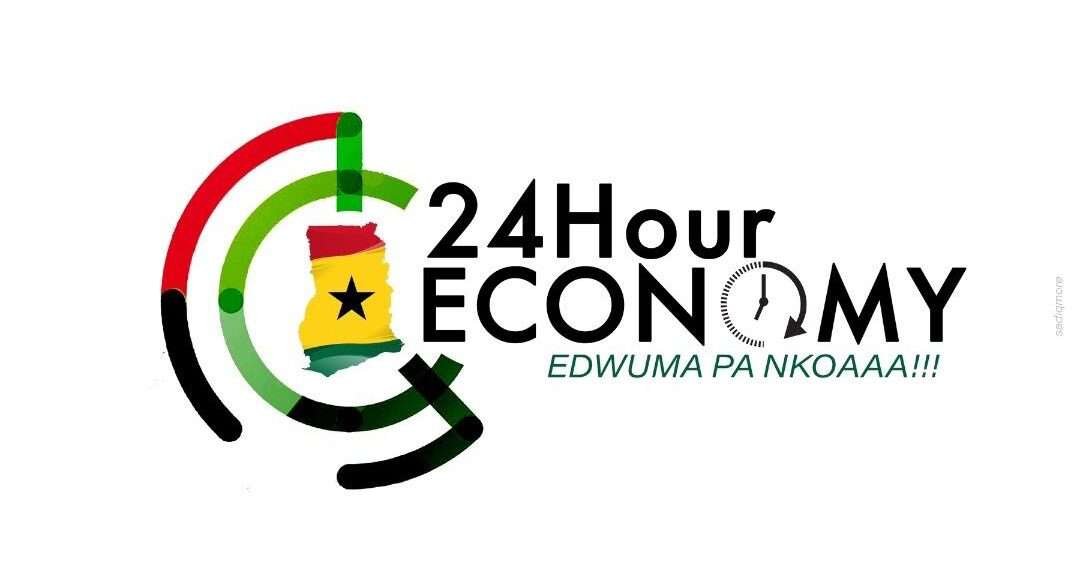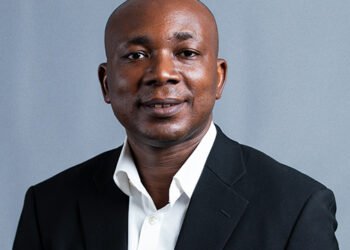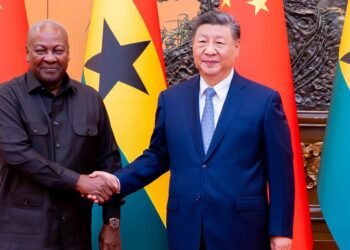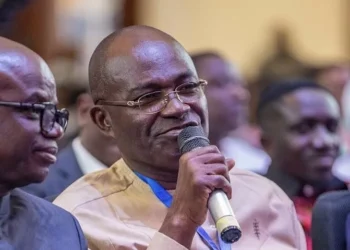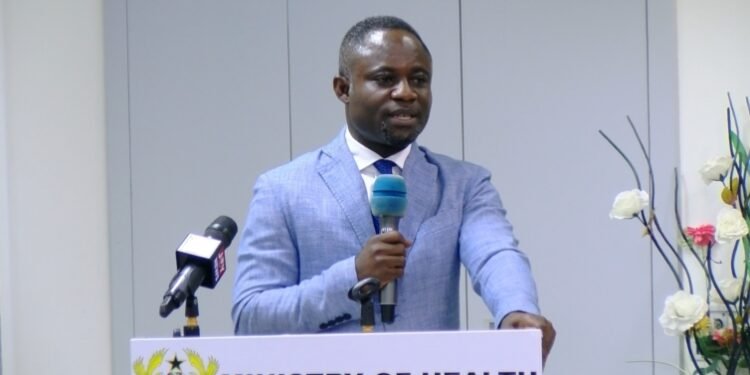The 24-hour economy, projected as a transformative policy by the National Democratic Congress (NDC), is being labeled a political ruse by New Patriotic Party (NPP) Communicator Dennis Miracles Aboagye.
He argued that what was sold to the Ghanaian people as a revolutionary strategy was, in fact, a hollow campaign gimmick lacking any serious implementation.
In a sharp and pointed critique, Aboagye challenged the NDC’s track record on delivering its much-touted flagship initiative.
“What have they, the NDC, delivered? A footnote of the existing and ongoing Ghana Beyond Aid Charter—and not the bold, job-creating revolution they promised!
“We told them countless times that the big talk they were making could not be artificially engineered. You can’t put a gun to the head of a businessman to operate 24 hours.”
Dennis Miracles Aboagye
Reflecting on the NDC’s earlier campaign promises, Aboagye noted that the ruling party had presented the 24-hour economy as a bold and transformative initiative designed to generate employment, enhance productivity, and turn Ghana into a continuously active economic hub.
He highlighted that among the pledges was the so-called “1-3-3” employment model, in which three individuals would share one job as a means to curb unemployment.
Aboagye pointed out that the NDC’s proposals ranged widely, from offering tax incentives to extending business hours across various sectors, including nightlife.
At the time, President Mahama had indicated that nightclubs would be operational around the clock, while then-Minister for Government Communications, Felix Kwakye Ofosu, mentioned that even local food vendors like waakye sellers would serve customers 24 hours a day.

Despite the grand vision, Aboagye argued that none of these promises have materialized. He emphasized that simply providing subsidized electricity does not automatically result in a functional 24-hour economy. “You cannot implement a 24-hour economy everywhere in the country.”
He stressed that the concept put forward by the NDC did not qualify as a genuine policy on its own, but rather represented the end result of a broader collection of coordinated policies. “They said we lie and we are naysayers!”
With the NDC back in power, Aboagye contended that the party is now altering its original commitments.
He argued that they rose to office on the strength of what he described as a deceptive promise, only to replace their initial pledge of a structured shift-based job system with a repackaged version of an already existing Economic Transformation Policy Document.
24-Hour Economy Plan Fails to Reflect Govt’s Ambition
Dennis Aboagye also raised concerns about the content of the current policy document, challenging its failure to reflect the ambitious promises initially made under the 24-hour economy agenda.
He argued that the entire concept was a deceptive narrative used to win public support, claiming the NDC sold Ghanaians an illusion of continuous business, factory, and government operations aimed at generating large-scale employment.
He followed up with a critical assessment of the implementation, pointing out that there is no clear directive or evidence of a nationwide shift work system as was originally touted.
“They claimed three people would share one job via shifts. Where is it? Public sector? Forgotten! They promised 24-hour government services. Now? Only a few agencies (like ports) are mentioned, and a few like Ghana Publishing that have been operating 24 hours long before the NDC came to office.”
Dennis Miracles Aboagye
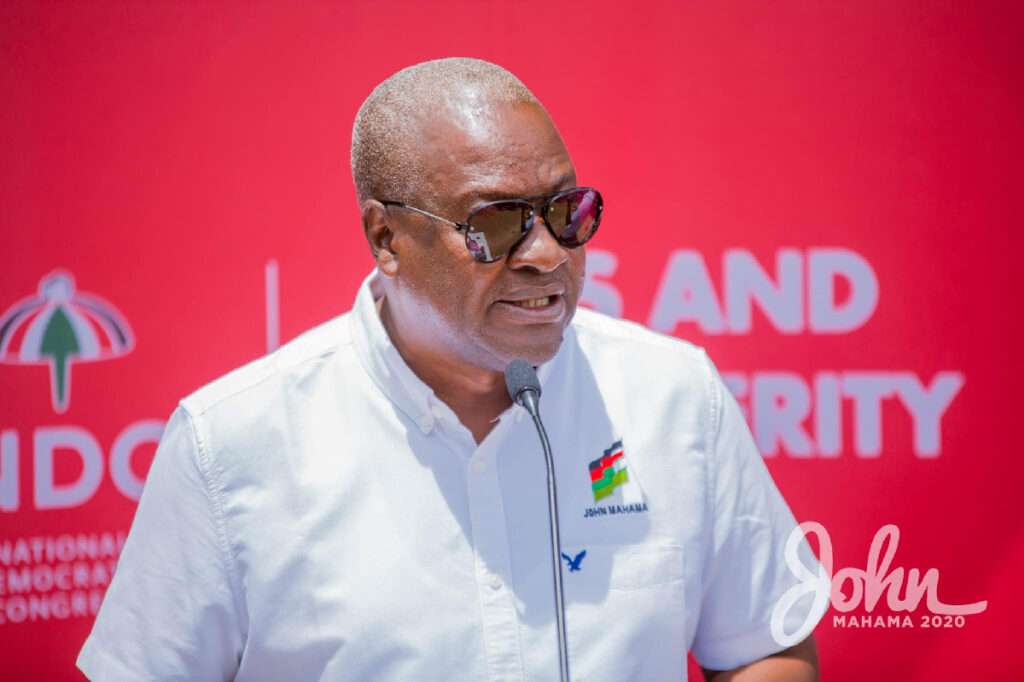
Regarding the previously promised revival of the nightlife sector, Aboagye pointed out that nightclubs—which were highlighted as part of the 24-hour economy plan—are completely absent from the current policy document.
He referenced earlier commitments made by President Mahama but noted that these elements have not been included in the official strategy now being presented.
He accused the NDC of misleading the public by creating the illusion of widespread job creation, only to produce what he described as nothing more than a consultant’s report, lacking any substantial impact.
His criticism was particularly pointed when it came to the “1-3-3” job model, which he dismissed as unrealistic and unserious. “The NDC promised three workers per job to tackle unemployment. It sounded too good to be true—because it was!”
He pointed out that the new document doesn’t mention the “1-3-3” system even once. Instead, it speaks of creating 1.7 million jobs by 2028—standard jobs with no relation to the shift-based system promised.
He added that the document admits unemployment will still be at 12% by 2028. “So, where is the massive job creation they promised?” he asked.
Policy Brings Debt, Not Jobs
Dennis Aboagye further alleged that the NDC quickly abandoned its flagship policy focus after assuming office. He argued that the party used a popular slogan to gain public favor, only to disregard it once elected.
He also criticized the inadequacy of the proposed incentives, describing them as superficial and lacking genuine support mechanisms.
Although the policy document outlines tax rebates ranging from 25 to 50 percent, Aboagye pointed out that these benefits are limited to businesses that already possess the financial capacity to expand, leaving smaller or struggling enterprises without meaningful assistance.

“No funding for struggling SMEs to actually adopt 24-hour operations. No guaranteed electricity or security for night-time businesses—just vague promises. The country has already been knocked into Dumsor. The incentives are useless for most businesses.”
Dennis Miracles Aboagye
Aboagye went on to accuse the NDC of masking their actual agenda with broad and unclear economic terms. He argued that the underlying objective of the 24-hour economy plan is to justify further borrowing and increased national debt.
According to him, the policy document reveals that over $1 billion in financing would be required to implement the plan, a detail he claims is hidden deep within its pages.
He continued his criticism by questioning the source of this funding, asserting that it would inevitably come from more loans and higher taxes.
Aboagye also highlighted that the document itself acknowledges Ghana’s current vulnerability in international trade, yet still advocates for substantial borrowing to support what he described as an ambiguous and inconsistent strategy—one that sharply deviates from the initial promises made to the public.
He concluded with a strong and unequivocal dismissal of the entire initiative. “The NDC lied to Ghana! No 24-hour public sector. No ‘1-3-3’ jobs. No nightclub revolution. No Techiman highways vulcaniser working at 3 am.”
Describing the policy document as nothing more than a recycled version of the existing Ghana Beyond Aid Charter, Aboagye reaffirmed his party’s position.
He emphasized the need for transparency and genuine employment opportunities, making it clear that they firmly oppose what they view as a misleading initiative.
READ ALSO: Ghana Poised to Reap Big from Soaring Gold Prices



